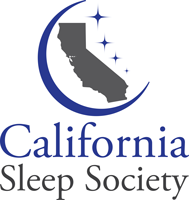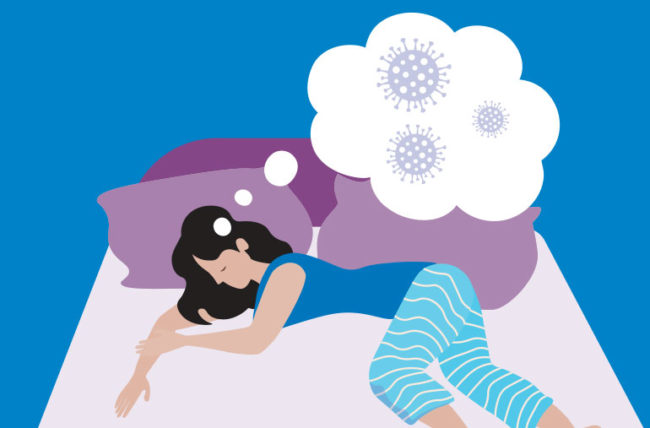By: Edwin M. Valladares, MS, RPSGT, Manager, USC Sleep Disorders Center
COVID-19 is an elusive buggee monster until it hits home. At the beginning of 2021 I contracted COVID-19. One day I felt like my lungs were slightly inflamed, like getting dust in your lungs and fighting it off. I had no reason to think I had COVID since I am careful at work and outside of the hospital. The next day I felt malaise and immediately placed a mask on while at home and isolated from the rest of the family. I tested that day and found out I was positive for COVID-19. I will never forget the feeling of anxiety and bewilderment. The first thing I did was pray. I pray daily, but what came to mind was what would happen to my wife and kids? Survival rates are high, but there are patients who develop complications. What I found was that I really did not know much about COVID-19 and what to do. I contacted Employee Health so they could coordinate my exposure tracing and my planned return to work. I am not sure where I caught it, but it wasn’t while I was at work given my timeline. I quickly became versed on what needed to be done: (1) I watched YouTube videos, (2) called a physician friend who advised me and (3) made a telemedicine appointment with a primary care physician. Since then, I have learned quite a bit, especially about sleep.
What I found out about my own sleep was that now I had difficulty sleeping. I wasn’t only nervous towards the beginning of the process, but I had developed insomnia for the first couple of days. Now I know why my friends recommend Melatonin if needed when infected by COVID. What I found was that sleep is precious. I had never had the inability to sleep since I am a person who is high energy, when I sleep – I sleep. As the infection progressed, I found that all I wanted to do was sleep as I my body fought the infection. Thank God I didn’t have any complications.
I called my friend, who I found out was the Principle Investigator of a new Regeneron trial. I joined the trial and based on how well I felt after the trial, I believe I was randomly placed in one of the treatment groups. I was grateful for this opportunity. My improvement was usual, but without complications. I felt all the usually reported symptoms, but I felt strong. All in all, it’s not an experience I wish on anyone, but I thank God I came out of it OK. From this experience I did learn lessons to use at our Sleep Disorders Center.
Lessons Learned That Can Help Our Own Patients
Up until I experienced COVID-19 firsthand, I didn’t know what patients went through. All I knew were the complicated cases the news reports on. But there were lessons I have been able to implement with our team and patients.
- Be graceful – Be graceful with team members when they or family member catches COVID. It’s easy to think about the rest of the team or the bottom line, but as team members their lives are being impacted. Complications will make their process even worst. As you are being graceful when they return, know that there are residual side-effects for a few weeks post-COVID infection. These side-effects vary from person to person, but it’s good to be aware of them. These can include brain fog, low energy, dizziness, memory loss, headaches, heart palpitations or sporadic lung constriction, to name a few. Being gracious as employees return to work can go a long way. Team members want to continue working for their family but will need to transition back. I experienced only very few of these, but I have colleagues in our hospital that have reported many of these side-effects, so being gracious goes a long way.
- Be consistent – Be consistent on protecting your team and patients. It’s easy for employees or patients to become comfortable and not protect themselves or others. Being on top of what must get done, such as sterilizing and masking up, will go a long way in keeping your team and patients safe. Though I don’t know where I caught COVID out in the community, l was always very careful – so being vigilant is very important.
- Don’t spread fear, spread care – As healthcare leaders it is important to not spread fear. If we act afraid, everyone around us will be afraid. So be mindful of the way you communicate, as you care for your team and patients. When I caught COVID I thought healthcare workers were going to treat me like I had leprosy, but it wasn’t the case. They were always caring. They protected themselves but were caring. I was grateful for this. Remember, our patients come to our centers for help. We may not be actively fighting COVID in our practices and labs, but we are fighting sleep disorders that make patients fearful and perplexed. Let’s help all our patients as if they were our first patient. Remember, not everyone has the knowledge we have or the connections we have.

